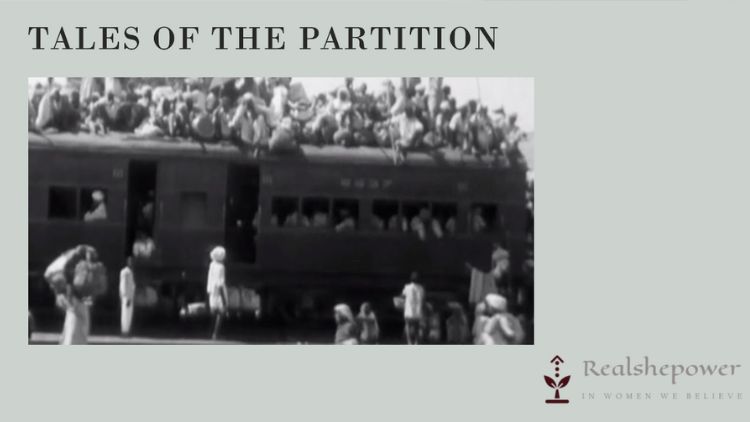The Train to Nowhere


The sweltering heat of July 1947 was oppressive, but it paled in comparison to the suffocating atmosphere of distrust and animosity that permeated the air in Multan. Kabir, a young schoolteacher, had always called this place home. His ancestors had lived there for centuries, their history intertwined with the very soil of the city.
The recent political decisions, however, had thrown his peaceful life into chaos. The impending Partition brought not only geographical divisions but also tore apart the very fabric of communities that had coexisted harmoniously for generations.
On a grim evening, as Kabir tutored a young group of kids in the courtyard of his house, a thunderous knock echoed through the alleyways. A cluster of agitated men, armed with lathis and torches, stood outside, their faces contorted with rage. The message was clear: Leave or face certain death.
Kabir’s elderly mother, Maa Ji, her hands trembling, began packing their most prized possessions. The family heirlooms, the sacred scriptures, but most importantly, a tiny box that held the soil of their ancestral land – a tangible connection to their roots.
By midnight, the family of four – Kabir, his wife Anaya, their six-year-old daughter Meher, and Maa Ji – were on the run. Aimless and scared, they moved from one hiding spot to another, trying to avoid the frenzied mobs that seemed to be everywhere.
Their salvation seemed to come in the form of a train headed to Delhi. Thousands had gathered, desperation evident in their eyes, all clamoring to get aboard the supposed sanctuary on wheels.
The scene at the station was sheer pandemonium. As the train roared to life, people clung to its sides, some even climbing onto the roof. Kabir, with Meher clinging to his back and holding Anaya’s hand, managed to find a small space in one of the compartments. Maa Ji was nowhere to be seen. In the mad scramble, she had been separated from the family.
The journey was nothing short of hellish. The overcrowded train lacked water and food. Every stop brought the fear of being ambushed. And then, it happened. Near the border, a horde of armed men swarmed the train. Screams filled the air as they dragged people out, their machetes glinting ominously in the twilight. Kabir held Anaya and Meher close, trying to shield them, but the mob was relentless.
Anaya, in a desperate bid to save her daughter, pushed Meher under the seat and draped her saree over her. She whispered for her to stay silent, no matter what. Moments later, Anaya was dragged away, her screams echoing long after she was gone.
When the train finally limped into Delhi, it was a carriage of trauma. Many passengers were missing; others were shell-shocked, their vacant eyes telling tales of unspeakable horror. Meher, hidden under the seat, was discovered by a relief worker. She was alive but had lost her voice, the trauma of the journey rendering her mute.
Kabir and Meher eventually settled in Delhi. While Kabir opened a small school, teaching children the importance of unity and peace, Meher never spoke again. She became a living testament to the horrors of Partition, her silence speaking louder than words ever could.
A Call to Our Readers: Share Your Story
Partition was not merely a line drawn on a map, but a scar left on the hearts of millions. The legacy of those traumatic times lives on in the memories of survivors and the tales handed down through generations. While the pain and anguish of that era might be overwhelming, there’s healing in remembering and sharing.
We firmly believe that to truly understand the depth of that experience and to heal collectively, it’s essential to bring these stories to light. Trauma can fester in silence, but sharing has the power to heal wounds, bridge divides, and remind us of our shared humanity.
If you or your loved ones have stories from the Partition, we urge you to share them with us. Send your narratives, memories, and anecdotes to admin@real-shepower.com. Let’s not allow these tales to fade into oblivion. By sharing, we not only pay homage to the resilience and spirit of those who lived through the upheaval but also provide a space for understanding, empathy, and collective healing.
The stories of Partition belong to all of us — they are a testament to our shared past, our resilience, and our hope for a harmonious future. Let’s give them the voice they deserve.
